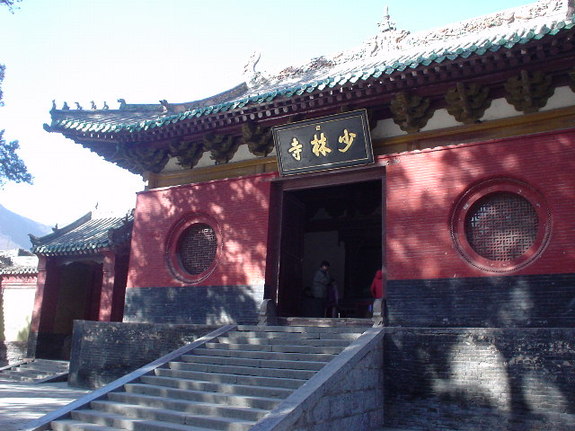Shaolin Temple spreading wings
* Source: Global Times
* [08:24 January 10 2011]
By Deng Jingyin
The top monk at Shaolin Temple in Henan Province revealed Saturday that the world famous site has opened some 40 businesses throughout the world, and has bought land and property overseas, news that generated a debate about whether the Buddhist institution is over-commercializing a popular icon in Chinese culture.
"We currently operate over 40 companies in cities across the world, such as Berlin and London. Meanwhile, Shaolin Temple is also participating in the operation of some other companies related to the same industry," Shi Yongxin, the temple's abbot, said at the 8th cultural industry forum at Peking University Saturday.
Shi said Shaolin's current focus is to grow overseas and monks are spreading Shaolin culture in English, German as well as Spanish around the world, Beijing News reported.
The news had again ignited growing concerns over whether the traditional culture should be commercialized.
The temple is the birthplace of Zen Buddhism and Chinese kung fu.
However, the leader denied that their overseas expansion plans is motivated by profit and emphasized such move is to spread the Shaolin culture.
"Foreign countries attach more importance to the spread of Buddhism compared with China, that's why we place extra emphasis on other countries these years," Qian Da-liang, head of the Intellectual Property and Intangible Assets Management Center at Shaolin Temple, told the Global Times.
Qian refused to disclose the temple's income from overseas activities to the Global Times.
Shaolin Temple is prohibited from profit making in China. Nearly 70 percent of the temple's income is submitted to the local government while the rest is for operational cost.
Zheng Weiwei, 23, who studied in the UK, told the Global Times that she feels that Shaolin's overseas activities are profit-driven.
She also cast doubts over the effectiveness of such commercial behavior, saying that if Shaolin fails to spread domestically, it would be hard to spread the true culture overseas.
Shaolin Temple receives nearly 2 million visitors every year, including 150,000 overseas visitors. About 60 martial arts schools opened near the temple with 60,000 students, according to Shi.
Chen Qijia, from the religion research office at the Renmin University of China, told the Global Times Sunday that Shaolin businesses and property overseas could be seen as commercializing the religion.
"Buddhism allows spreading its doctrines in secular ways," Chen said. "I think as long as they insist on what should be in a religion, commercialization is just a form."





 Reply With Quote
Reply With Quote